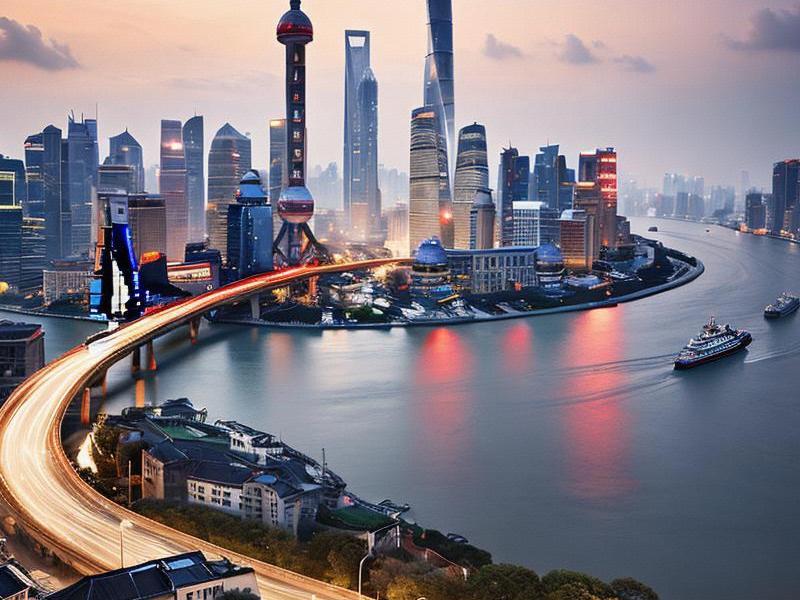This article delves into the multifaceted aspects of Shanghai, exploring its transformation from a historic port city to a global metropolis that is a beacon of innovation, culture, and urban development. Shanghai's unique blend of tradition and modernity makes it a fascinating subject for analysis.

Shanghai, often referred to as the "Pearl of the Orient," stands as a testament to China's rapid economic growth and urbanization. As the largest city in China and one of the world's most populous metropolitan areas, Shanghai is a hub of commerce, finance, culture, and innovation. Its strategic location at the mouth of the Yangtze River has historically made it a key point for trade and cultural exchange, and today, it continues to play a pivotal role on the global stage.
The city's skyline is a visual representation of its economic prowess and architectural innovation. The iconic Oriental Pearl Tower, the Jin Mao Tower, and the Shanghai Tower are not just architectural marvels but also symbols of Shanghai's ambition to be a global financial center. These skyscrapers, along with the bustling Pudong area, have transformed Shanghai into a modern metropolis that rivals any city in the world.
Economically, Shanghai is a powerhouse. It is home to the Shanghai Stock Exchange, one of the largest stock exchanges in the world, and hosts numerous multinational corporations and financial institutions. The city's free trade zone has further solidified its position as a gateway for international trade and investment. Shanghai's economy is diverse, with strengths in manufacturing, technology, real estate, and services, making it a resilient and dynamic economic engine.
Culturally, Shanghai is a melting pot of traditions and modernity. The city is renowned for its rich history, which dates back thousands of years, and its role as a center for art, literature, and fashion. The Bund, a historic waterfront area, showcases a blend of colonial architecture and modern skyscrapers, reflecting the city's historical significance and contemporary vibrancy. The French Concession, with its charming streets and cafes, offers a glimpse into the city's colonial past.
上海花千坊龙凤
Shanghai's cultural scene is thriving, with numerous museums, galleries, theaters, and music venues. The Shanghai Museum is celebrated for its extensive collection of Chinese art, while the Power Station of Art, a former power plant turned contemporary art museum, attracts visitors from around the world. The city's annual events, such as the Shanghai International Film Festival and the Shanghai Fashion Week, further highlight its cultural significance.
Innovation is at the heart of Shanghai's development. The city has invested heavily in research and development, making it a leader in technology and innovation. Zhangjiang Hi-Tech Park, often referred to as "China's Silicon Valley," is home to numerous high-tech companies, startups, and research institutions. Shanghai's commitment to innovation is also evident in its smart city initiatives, which aim to integrate technology into urban planning and management to improve the quality of life for its residents.
Sustainability is another key focus for Shanghai. As one of the world's most populous cities, Shanghai faces significant challenges related to urbanization, pollution, and resource management. However, the city has taken proactive steps to address these issues. Initiatives such as the construction of green spaces, the promotion of public transportation, and the implementation of energy-efficient technologies are helping to crteeaa more sustainable urban environment.
上海水磨外卖工作室
Shanghai's urban development is characterized by its comprehensive planning and strategic vision. The city has undergone significant transformation over the past few decades, with extensive infrastructure projects aimed at improving connectivity and livability. The Shanghai Maglev Train, the world's first commercial high-speed magnetic levitation train, is a prime example of the city's commitment to cutting-edge transportation solutions.
The city's efforts to preserve its historical and cultural heritage are also noteworthy. Efforts have been made to restore and protect historic buildings and neighborhoods, ensuring that Shanghai's rich history is not lost in its pursuit of modernity. The preservation of sites such as the Yu Garden and the Old City God Temple reflects the city's commitment to maintaining a balance between tradition and progress.
Shanghai's role on the global stage is becoming increasingly significant. As a member of the World Expo Organizing Committee, the city has hosted major international events, including the 2010 World Expo, which attracted millions of visitors from around the world. These events not only showcase Shanghai's capabilities as a host city but also enhance its international profile and influence.
上海龙凤419
The city's international collaborations and partnerships further underscore its global significance. Shanghai has established sister city relationships with numerous cities around the world, fostering cultural exchanges, economic cooperation, and mutual understanding. These partnerships contribute to Shanghai's status as a global city and facilitate its integration into the global community.
However, Shanghai's rapid development is not without challenges. Issues such as housing affordability, traffic congestion, and environmental sustainability require ongoing attention and innovative solutions. The city's government has implemented various measures to address these challenges, including the promotion of affordable housing, the expansion of public transportation networks, and the adoption of green technologies.
In conclusion, Shanghai is a dynamic and multifaceted city that exemplifies China's transformation and its aspirations for the future. Its blend of tradition and modernity, economic prowess, cultural vibrancy, and commitment to innovation make it a unique and influential global metropolis. As Shanghai continues to evolve, it remains a symbol of China's rise on the world stage and a model for urban development and globalization.
The story of Shanghai is one of resilience, ambition, and transformation. From its historic roots as a port city to its current status as a global hub of commerce, culture, and innovation, Shanghai's journey is a testament to the potential of urban centers to drive national and global progress. As the city looks to the future, its ability to balance tradition and modernity, address challenges, and embrace opportunities will be crucial in sustaining its growth and enhancing its global standing.